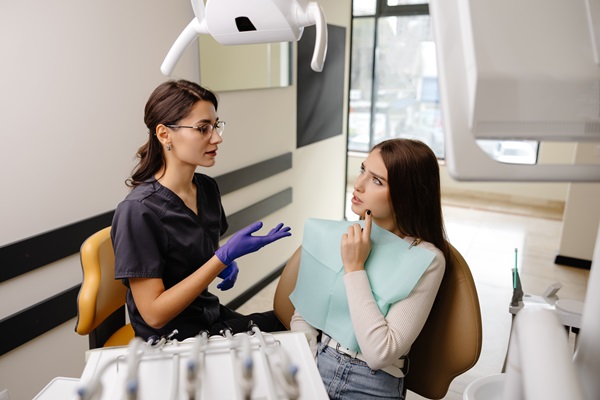Treat a Dental Emergency as Soon as Possible

It is important to treat a dental emergency as soon as possible to prevent any concern from worsening. This review discusses the different types of dental emergencies and how you can properly treat them.
Here is what you should know about a dental emergency
A dental emergency does not improve on its own. Fortunately, emergency dentists are able to treat oral health and dental trauma concerns promptly to limit long-term damage and reduce cost and discomfort. The following is a detailed review of all of the things that are important to know about treating a dental emergency.
The different types of dental emergencies
A dental emergency is any oral health concern or instance of dental trauma that requires immediate attention to avoid worsening or prolonged discomfort and concerning oral health symptoms. The most common types of dental emergencies include:
- A tooth infection
- Severe chips and cracks
- Severe tooth decay
- Dislodged tooth
- Knocked out tooth
- Gum lacerations
Essentially anything can cause a dental emergency. Common causes include car accidents, blows to the mouth during a sporting event, a nasty fall, a physical altercation, an oral infection, bruxism, and severe decay that is left untreated.
What to do after enduring a dental emergency
Panic often sets in after a dental emergency. This can make matters worse, so the first thing to do is to try and relax as much as possible. Next, you should find any teeth that are knocked out of the mouth (if applicable) and preserve them by immediately cleaning and storing them. The next step is to contact the emergency dentist practice and head to the office if they are able to see you right away. However, it is strongly encouraged that you have someone else drive you if you are in severe discomfort.
What types of treatment are there for a dental emergency?
Often, the first goal when treating a dental emergency is to alleviate the initial symptoms, such as swelling, pain, and bleeding. Next, the dentist may be able to perform a restorative procedure on the same visit, such as placing a temporary dental crown for a chipped or cracked tooth. Ultimately, the type of treatment that is used depends on the severity and the type of damage.
How to prevent a dental emergency in the future
Of course, accidents can occur even if you take every precaution in the world. However, you can greatly reduce your risk of dental trauma or an oral health concern by protecting your teeth at vulnerable times (i.e. wearing a mouthguard during contact sports) and practicing good oral hygiene by brushing, flossing, and using mouthwash regularly.
Do you have a dental emergency that needs immediate treatment?
We can treat a range of dental emergency types. Whether you bit down too hard and cracked a tooth, have a tooth infection, or endured another type of dental emergency, we are here to provide the care you need. Call us now if you are in need of dental emergency treatment.
Request an appointment here: https://www.smilesbycanada.com or call Smiles by Dr. Canada at (281) 826-5180 for an appointment in our Houston office.
Check out what others are saying about our services on Yelp: Dental Emergency in Houston, TX.
Recent Posts
If your family dentist or a friend’s family dentist offers orthodontic care as well as general dental care, you might be wondering if a family dentist is an orthodontist. Both family dentists and orthodontists work with teeth to improve patients’ smiles. However, putting braces or Invisalign on teeth is not the same thing as being…
Both general dentist and family dentists are responsible for the oral health care of patients of all ages. They provide a wide range of services, ranging from preventive measures to light cosmetic ones. Wondering whether it is best to see a general dentist or a family dentist? For the most part, they are quite similar! Keep…
Dental bonding is an efficient way to restore the appearance and function of teeth. Your cosmetic dentist can use this to repair any damage, discoloration, or decay. Cracked, chipped, broken, or stained teeth can look new. This type of treatment can also close gaps between teeth. If you want to know how dental bonding works…
Finding out that you need a root canal can be nerve-racking. Caring for the treated tooth can be even more stressful. Knowing what to do after the treatment can help you prepare well for it. Here are some tips for a smooth and quick recovery after your root canal.The patient must wait to eat as…


